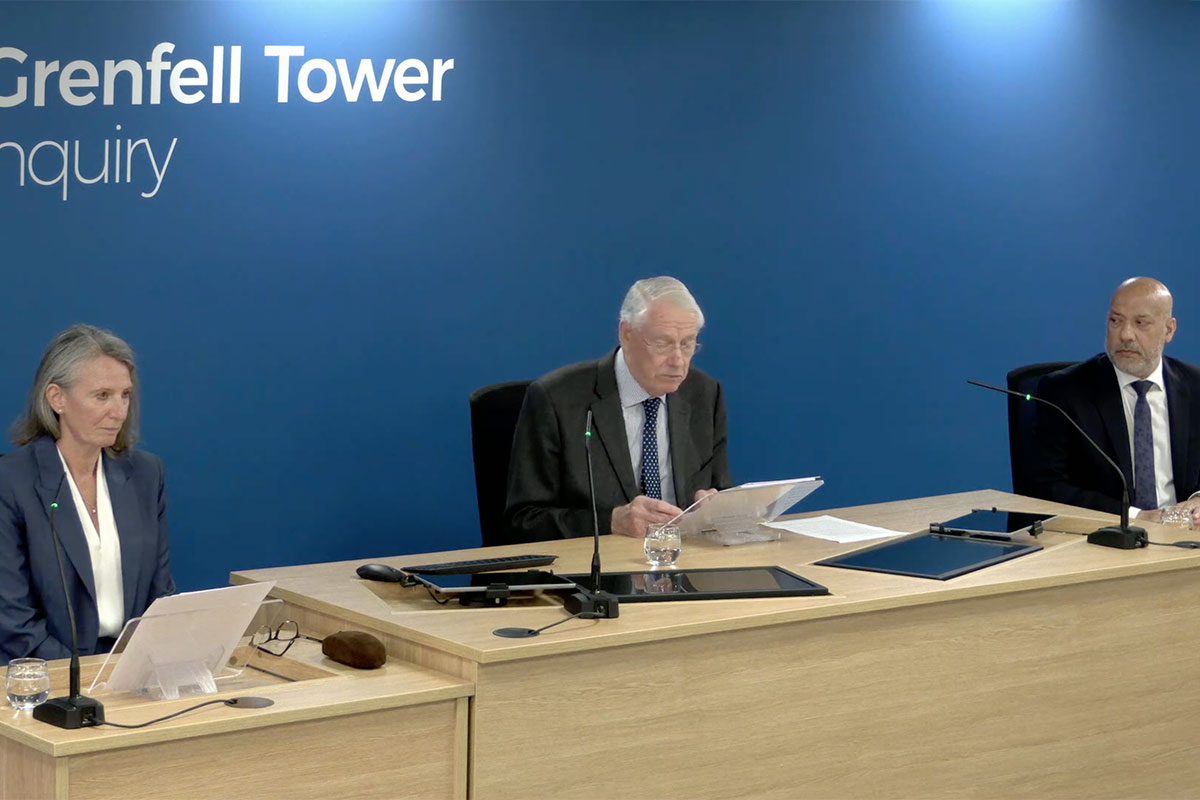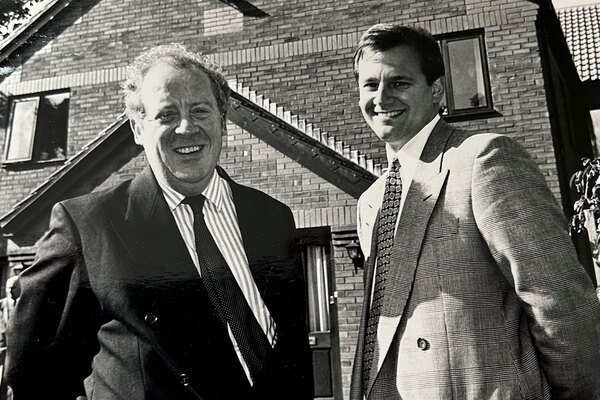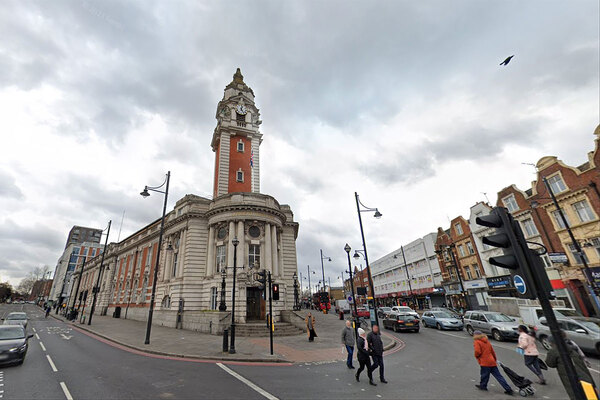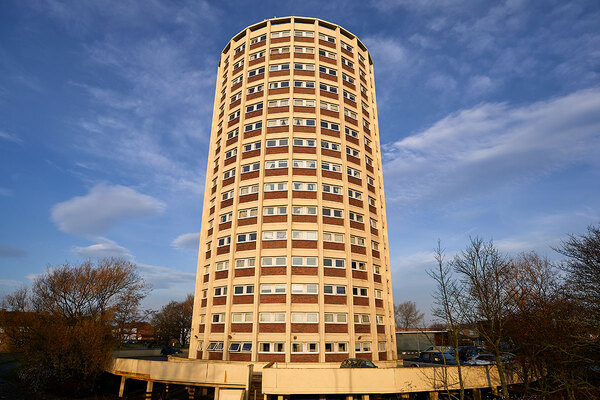You are viewing 1 of your 1 free articles
The Week in Housing: the final Grenfell Tower Inquiry report did not hold back in delivering criticism
The Week in Housing is our weekly newsletter, rounding up the most important headlines for housing professionals. Sign up below to get it direct to your inbox every Friday
More than seven years after the Grenfell Tower fire claimed the lives of 72 people, the second and final report from the inquiry has been published.
The 1,571-page report, which examined what led to the disaster, was scathing in its conclusions. It attacked central government’s failure to prevent the fire despite being “well aware” of the risks and was critical of social landlords for a “serious failure to observe basic responsibilities”.
It said “systematic dishonesty” by product manufacturers was a “very significant reason” why Grenfell Tower was clad in such dangerous materials.
The section on the manufacturers also contained heavy criticism of various bodies that certified products, such as the British Board of Agrément (BBA), a significant organisation in the construction industry.
It said the “dishonest” strategies of the corporations succeeded “in a large measure because of the incompetence of the BBA… and an ingrained willingness to accommodate customers instead of insisting on high standards”, which had allowed it to become “the victim of dishonest behaviour on the part of unscrupulous manufacturers”.
It also criticised the Building Research Establishment (BRE) – the national building science centre for the British government until it was privatised in 1997 – as having “sacrificed rigorous application of principle to its commercial interests”.
The report concluded that Grenfell Tower’s social housing provider, the Kensington and Chelsea Tenant Management Organisation, was responsible for “chronic and systemic failings” in fire safety management, as well as a “toxic” relationship with the tower’s residents, who came to regard it as an “uncaring and bullying overlord that belittled and marginalised them”.
The report made no fresh recommendations for social landlords, saying recent legal changes, in particular the Social Housing (Regulation) Act, are sufficient to drive reform.
However, this decision drew some criticism from the former chair of Grenfell Tower’s leaseholder association, lawyers for the community and campaigners.
And prime minister Sir Keir Starmer pledged, in response to the report, to make sure social landlords were “held to account” for the safety of the homes they provide.
He also announced the government would write to “all companies found by the inquiry to be part of these horrific failings as the first step to stopping them being awarded government contracts”.
Inside Housing has outlined the reaction to the report here, and looked at what it said about the key players in the disaster.
Before the report came out, it emerged that the government is planning to introduce personal emergency evacuation plans (PEEPs) for disabled residents, five years after they were recommended by phase one of the Grenfell Tower Inquiry.
Rushanara Ali, the building safety minister, confirmed in a statement to parliament on 2 September that plans for “residential PEEPs” would be brought forward by the Home Office in the autumn.
Under the plans, residents with disabilities and impairments will be entitled to a “person-centred risk assessment” to identify appropriate equipment and adjustments to aid their fire safety or evacuation.
Elsewhere, a cross-party coalition of more than 100 councils called on the government to usher in solutions to England’s “broken” council housing system, including a multimillion-pound cash injection and reforms to Right to Buy.
Their call came in a new report, Secure the future of council housing, which was launched at an event in Westminster on Tuesday. It detailed solutions to fix council home funding after years of an “unsustainable financial model and erratic national policy changes”.
The government confirmed it will not go ahead with plans dubbed British homes for British workers, as they are “unnecessary” and would be a waste of taxpayers’ money.
The Conservative government announced the proposals around social housing allocation in January and they were the subject of an eight-week consultation. However, in a response on Monday, the new government rejected the plans, saying they were “unnecessary, unfeasible, risked harming communities, or costly”.
We reported that the mayor of the West Midlands wrote to Angela Rayner asking for £146m in funding not spent by his predecessor, to help build around 2,000 social homes.
Richard Parker has called for the funds to be released by the housing secretary. He said the money was ring-fenced for tackling brownfield sites under Andy Street, the region’s former Conservative mayor, but did not get spent.
In some very sad news, Inside Housing reported on two deaths in the sector. Tributes were paid to Eric Thomson, a former council housing director and chief executive, who passed away aged 85 on 26 August.
Mr Thomson, a lifelong Cumbrian who rose to the top job at Copeland Borough Council, was described by family and friends as “thoughtful”, “dedicated” and “unwavering” in his commitment to serve the local community.
And housing legal aid lawyer Simon “Spike” Mullings passed away unexpectedly last weekend. Organisations and individuals across the housing and legal world paid tribute to Mr Mullings as someone with “boundless energy and kindness”.
In Scotland, the first minister said his administration will “carefully consider” the Grenfell Inquiry recommendations, and confirmed plans for a building safety levy and £600m expenditure to develop affordable homes.
At the Scottish National Party Conference, Paul McLennan, the housing minister, said homelessness prevention duties for social landlords will be “phased in”.
He said the duties would be properly resourced and that he would be “guided by the sector” on when to bring in the requirements, which feature in the Housing (Scotland) Bill currently going through the Scottish parliament.
The bill places a new ‘ask and act’ duty on social landlords, health boards and the police to ask about a person’s housing situation and act to prevent them becoming homeless wherever possible.
At the same time, it has been revealed that two key Scottish government funding pots have not yet been allocated to social landlords.
In Wales, a new report found that the government is likely to miss its target of delivering 20,000 low-carbon homes “without significant additional spending”.
In the North of England, Karbon Homes secured a new £54m loan from NatWest and refinanced £235m in existing debt facilities to improve its existing stock and build more homes.
Scott Martin, executive director of resources at Karbon, said the new agreements will mean its spending on existing homes and commitment to build new affordable homes was “supported by our funding structures”.
Southern Housing retained its A3 credit rating with Moody’s, helped by its “strong” balance sheet, but the agency flagged the landlord’s current “weak” margin and interest cover.
In an updated credit opinion, Moody’s pointed to the 80,000-home landlord’s size as a strength, along with its “very strong liquidity”. However, it also warned of financial challenges.
There were some interesting development trends in the English regulator’s latest quarterly survey, as it revealed a third of total development spending came from just eight registered providers, as building activity among for-profits increased.
Inside Housing also published its monthly round-up of top-level housing sector appointments, detailing the main moves in August 2024.
Have a good weekend.
Grainne Cuffe, deputy news editor, Inside Housing
Say hello: grainne.cuffe@oceanmedia.co.uk
Editor’s picks: five stories you may have missed
Vistry on track to unseat Barratt as biggest builder and deliver one in six new affordable homes
NIHE warns Belfast councillors that housebuilding efforts will be hit by budget issues
Government gives controversial 351-home London tower block scheme green light
Large London landlord hunts for chief governance and risk officer as part of executive ‘refresh’
Scottish landlord appoints communities boss as part of restructure
Sign up for our Week in Housing newsletter
Already have an account? Click here to manage your newsletters












